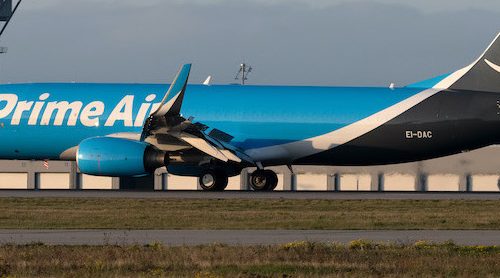- Cargo business with a record profit in Q1 continues on track for success
- Rising demand expected in 2021 second half: largest selection of tourist destinations
The global coronavirus (COVID-19) pandemic continued to weigh heavily on the Lufthansa Group’s business performance in the first quarter of 2021. Global travel restrictions continued to have a negative impact on demand for air travel and booking behavior.
Carsten Spohr, CEO of Deutsche Lufthansa, says: “The longer the crisis lasts, the greater people’s desire to travel again becomes. We know that bookings shoot up wherever restrictions are loosened and travel becomes possible again.

“Given the foreseeable major advances in vaccination rates, we expect demand to rise sharply from the summer onwards. Encouraging signals, such as the announcement by the EU Commission that it will once again allow vaccinated passengers from the USA to travel to Europe, confirm our confidence.
“By contrast, the first quarter was still completely dominated by the pandemic. Thanks to consistent cost savings, we were nevertheless able to achieve better results than in the previous year.
“The changes already implemented in the Group are showing effect. We will not ease in our efforts to further modernize the Lufthansa Group, to make it leaner, more efficient, and to maintain our position among the world’s leading airlines.”
Lufthansa Cargo with record quarter
Due to the continued scarcity of freight capacity in the market despite continued high demand, the cargo business of the Lufthansa Group was able to maintain its strong development from the previous year. Compared to the same period last year, sales increased by 45 percent to EUR 802 million.
The freight load factor rose by 11.9 percentage points to 75.7 percent. Adjusted EBIT improved accordingly to EUR 314 million (previous year: minus EUR 22 million), the highest ever in Lufthansa Cargo history.
First quarter of 2021
Group sales fell by 60 percent to EUR 2.6 billion in the first quarter of the financial year (previous year: EUR 6.4 billion). The previous year’s comparable quarter was only partially affected by the effects of the pandemic. Despite this, operating loss based on Adjusted EBIT was EUR 1.1 billion, lower than in the previous year (previous year: minus EUR 1.2 billion). Consolidated net income was minus EUR 1.0 billion (previous year: minus EUR 2.1 billion).
Operating expenses decreased by 51 percent to EUR 4.0 billion (previous year: EUR 8.2 billion). The number of employees fell by 19 percent compared to the previous year to a total of 111,262. A recently initiated attractive voluntary leave program for the ground employees of Deutsche Lufthansa AG is intended to help reduce the number of employees further in a socially acceptable way.
Traffic development
The capacity offered in the first quarter of 2021, measured in passenger kilometers, was 21 percent of the pre-crisis 2019 level. In total, the airlines of the Lufthansa Group carried 3 million passengers in the first three months. This is 10 percent of the pre-crisis level of the first quarter of 2019. The seat load factor was 45 percent or 33 percentage points lower than in the first quarter of 2019.
Cash flow and liquidity development
At the end of the quarter, the Lufthansa Group had liquidity of EUR 10.6 billion. This includes untapped funds of the governments’ stabilization measures and loans amounting to around EUR 5.4 billion.
Free cash flow adjusted for IFRS 16 effects was minus EUR 947 million in the first quarter (previous year: EUR 620 million). With an average of EUR 235 million per month, operating cash drain was below the original expectation of about EUR 300 million. This positive development is mainly due to the better than expected earnings development in the logistics and MRO segments.
At EUR 10.9 billion, net debt was EUR 1.0 billion higher than at the end of 2020 (December 31, 2020: EUR 9.9 billion). At the same time, the equity ratio increased by 1.8 percentage points compared to year end 2020 to 5.3 percent (31 December 2020: 3.5 percent), mainly due to lower pension liabilities resulting from increasing interest rates.
Strengthening the balance sheet remains in focus
The Lufthansa Group is committed to strengthening its balance sheet and achieving an investment grade rating in the medium term.
“Financial stability has always been an important pillar of the Lufthansa Group and the prerequisite for long-term success,” says Remco Steenbergen, CFO of Deutsche Lufthansa AG. “In order to compensate for the effects of the corona crisis, the consistent and successful implementation of strict cost-cutting measures in all Group companies remains our highest priority. Furthermore our financing measures create the conditions to position the company for the future and to maintain and strengthen its competitive position,” says Steenbergen.
Regarding future corporate financing, the company will propose the Annual General Meeting on 4 May 2021 the creation of a new Authorized Capital C in accordance with §7b WStBG (Economic Stabilization Acceleration Act) with a nominal value of up to EUR 5.5 billion. The aim is for the company to raise capital flexibly in the capital market.
Capacity development and outlook
The evolution of the pandemic is causing continued travel restrictions in almost all parts of the world. Therefore, demand is expected to only recover gradually in the second quarter. However, as a result of the progress of vaccinations and the further availability and growing acceptance of testing possibilities, the company expects a significant market recovery in the second half of the year. For the full year, the company expects a capacity of approximately 40 percent of the pre-crisis level (so far: 40 to 50 percent).
The desire for travel is unbroken among people worldwide. Where restrictions are relaxed or eliminated, bookings rapidly increase. Especially for leisure destinations, demand is expected to increase significantly. The Lufthansa Group Airlines will be able to offer capacity up to 70 percent of pre-crisis levels in the short term in order to react flexibly to market changes. Furthermore, our airlines have added a large number of flights to leisure destinations in their flight plans.
For the second quarter the company expects a lower operating cash drain compared to the first quarter. Supported by further structural cost reductions and the successive expansion of flight schedules, an operating cash drain of around EUR 200 million per month on average is expected. For the full year, the guidance for a lower operating loss compared to the prior year, as measured by Adjusted EBIT, remains unchanged.

